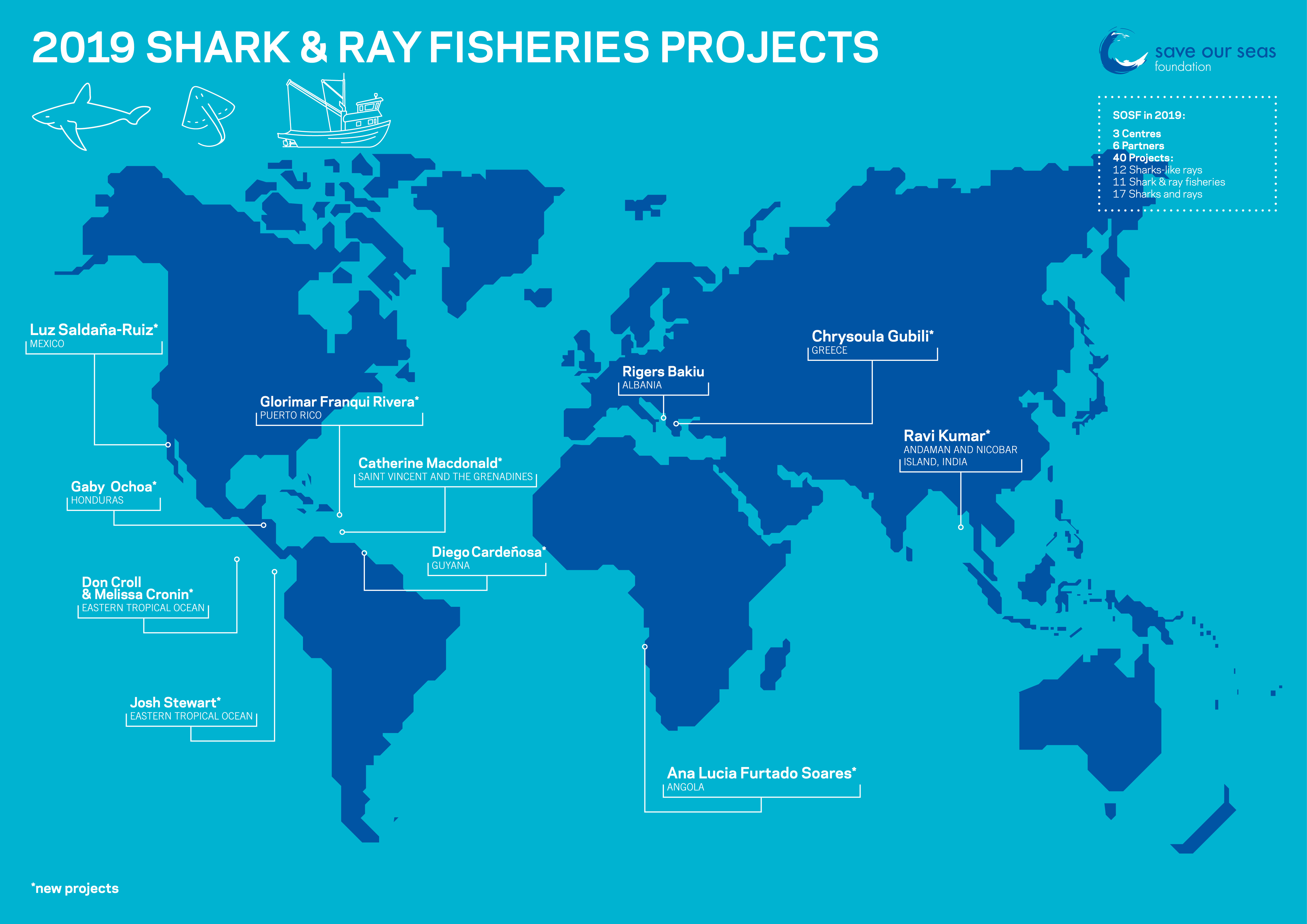2019 Shark & ray fisheries projects
Sharks, rays, skates and chimaeras form an important part of catches in fisheries around the world. When they’re monitored, fisheries can give researchers an important window into what’s happening with the status of many species and are a reserve of really valuable information. However, more often than not, we know little about the impact of these fisheries and sometimes even less about how these fisheries operate. The SOSF is funding 11 projects to help fill in the details we don’t yet understand: which species are caught, and where? What’s the conservation status of these populations, and how might we better protect them? We need a baseline record of what’s happening in shark fisheries, and the projects we support will help establish long-term monitoring to better manage how we fish our oceans.

Rigers Bakiu collects catch data from fishers and aquaculture workers and encourage Albanian authorities to protect these vulnerable species. He will also engage with coastal communities to sensitise them to the plight of Albania’s sharks.
Diego Cardeñosa is using a variety of methods to understand the status of shark fishing and trade, helping Guyana to make the best decisions for its ocean life.
Josh Stewart is training fishery observers to assess whether or how mobulid rays survive after being released from purse-seine fishing nets in the Eastern Pacific.
Donald Croll and Melissa Cronin are working with the Inter-American Tropical Tuna Commission to find out which Manta and devil ray species are caught in the Eastern Pacific.
Glorimar Franqui Rivera is getting samples from fish market with the help of local fishers and is using genetics to find out which sharks are in Puerto Rican water.
Catherine Macdonald is figuring out which sharks live in St Vincent and how they are utilised by local communities.
Ana Lucia Furtado Soares is unlocking information about the artisanal fishing fleet in Angola’s rich waters, building the baseline for managing and protecting these species in West African waters.
Chrysoula Gubili is identifying which batoids are caught in the Mediterranean to understand the effects of fishing practices and what illegal, unreported and unregulated fishing means for vulnerable species.
Ravi Kumar is scouring fish markets and landing sites in the Andaman and Nicobar islands to provide accurate species identifications and gather information about shark trade, and thus inform management plans.
Gabriela Ochoa is working with Miskito fishers in Honduras to get a handle on the scale of shark fishing and manage the effort in this area.
Luz Saldaña-Ruiz is monitoring catch sites and interviewing fishers in the northernmost fishing camp on the Mexican Pacific coast to improve our understanding of how this artisanal shark fishery operates.
